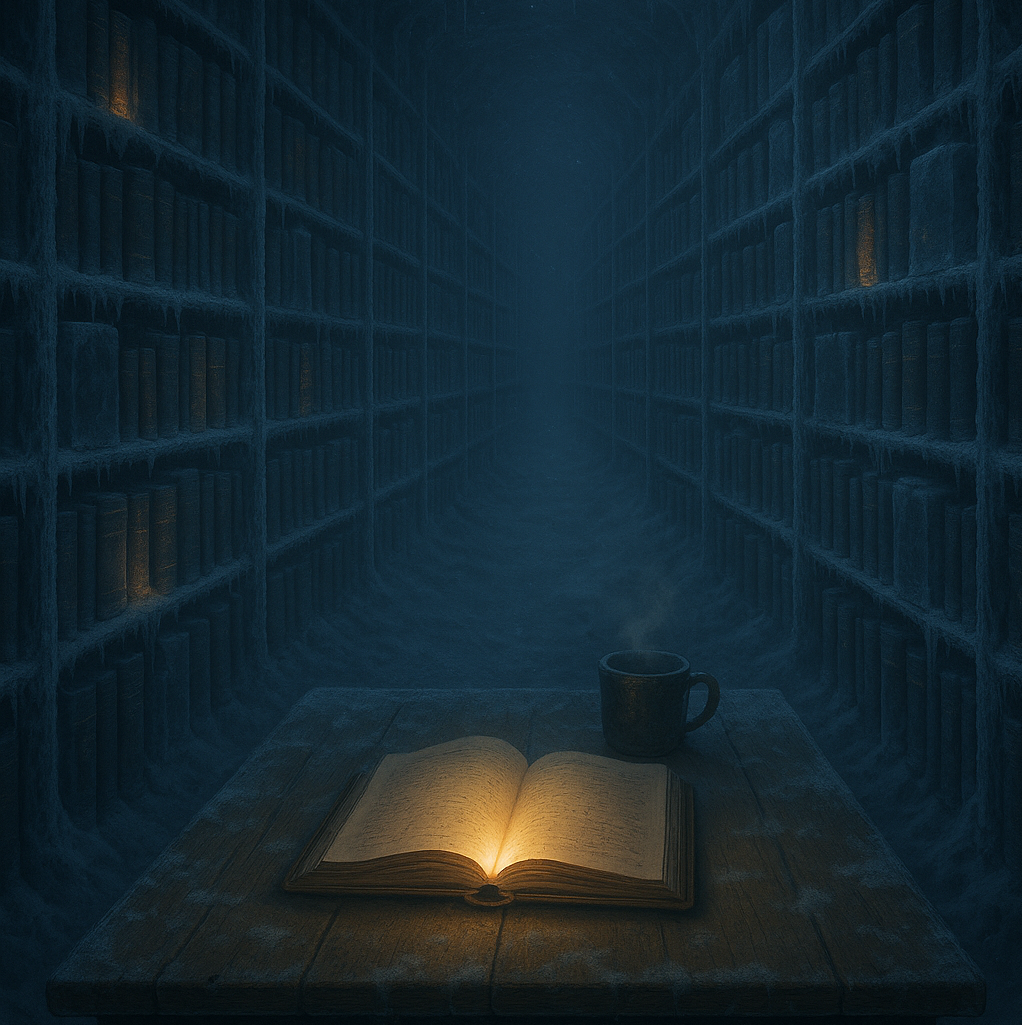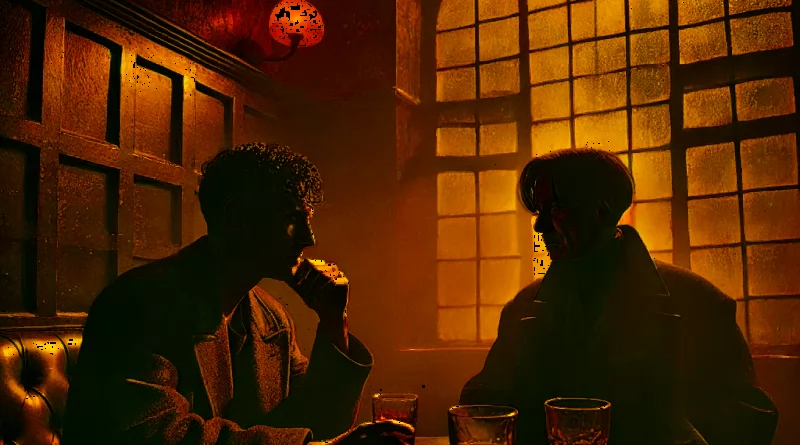Cold Metal, Human Heart
It was a cold, damp evening in late November 1992, the kind of night where the fog from the Thames wrapped itself around London’s streets, making the world feel smaller and more intimate. In a cozy, dimly lit pub near Charing Cross, the kind of place where tourists rarely ventured and the jukebox hummed with the sounds of The Clash and New Order, Frank Tovey—better known as Fad Gadget—sat nursing a pint of bitter. The pub’s name was The Old Bell, a nondescript haunt with faded wooden beams and peeling wallpaper, a relic from a bygone era that seemed to match the mood of its patrons that night.
Frank was at a low point. The electronic scene had changed since his early years of pioneering experimental sounds and pushing the boundaries of performance. By the mid-80s, he had transitioned away from his Fad Gadget persona, turning instead to rawer, more stripped-down music under his own name. But even that had lost its momentum, and his latest attempts to revive his career felt like whispers in a scene that had become louder and brasher with the rise of rave culture and new dance acts. He had considered giving up music entirely, a thought that haunted him as he took a long sip from his glass.
The door to The Old Bell swung open, letting in a gust of cold air and the familiar silhouette of another man who had seen better days. Gary Numan stepped inside, his face partly obscured by a long black overcoat. He spotted Frank across the room, and after a brief moment of hesitation, offered a small nod. The two had crossed paths before—at a few festivals, backstage at gigs—but they had never shared more than a few polite words. Tonight, however, something in Numan’s expression suggested a need for company, for a connection beyond the usual pleasantries of the music scene.
Frank gestured to the empty seat beside him, and Gary slid into it with a weary smile. He ordered a whisky, neat, and sat back with a sigh, the two of them taking a moment to adjust to the proximity, the unexpected quiet that settled between them.
“Funny seeing you here,” Gary began, offering a hint of a smile. “How long’s it been since we last bumped into each other? Must be, what, ’86?”
“Yeah, probably around then,” Frank replied, his voice low and dry. “A lifetime ago, really. Before the industry decided we weren’t cool anymore.” He chuckled, a self-deprecating sound that held a touch of bitterness.
Gary raised his glass in a half-hearted toast. “To not being cool anymore, then.”
They clinked their glasses together, and for a moment, the weight of their shared struggles seemed to lighten. Gary, too, was at a nadir. After the success of Cars and Are ‘Friends’ Electric?, he had struggled to find his place in a shifting music scene. The critical backlash had been relentless, dismissing him as dated, out of touch. His albums through the late 80s—Strange Charm, Metal Rhythm—had largely been ignored, and even his attempt to rebrand with 1991’s Outland failed to make a significant impact. His music felt stagnant, and he feared he had become a relic of his own creation.
“So, Frank, you still keeping busy with… whatever it is you’re doing now?” Gary asked, trying to break the tension.
Frank gave a rueful smile. “Yeah, if you can call it that. I’ve been doing smaller shows, more personal stuff. Folk, blues, trying to strip everything down. But honestly, it feels like I’m screaming into the void. Sometimes I miss the madness of the old days, you know? Crawling across broken glass on stage, the thrill of it all.”
Gary nodded, leaning in slightly. “I get it. I’ve been trying to adapt too, but everything feels so… off. Like I’m chasing something that’s always just out of reach. I thought, for a while, I could reinvent myself—go pop, then funk, even tried to go more mainstream with the last record, but… none of it really worked. Maybe it’s just… time.”
“Time for what? Giving up?” Frank’s tone was sharper than intended, but it struck a nerve with Gary. He glanced sideways, seeing Frank’s serious expression. “Nah, come on. You know it’s not really time for that. Maybe we don’t pack arenas anymore, but we still have a voice. Still have things to say.”
“Yeah, but does anyone want to listen?” Gary asked, the frustration leaking into his words. “Feels like I’m just talking to myself sometimes, stuck in this loop of the same old sounds. Sometimes I think… maybe the problem is me. Maybe I just don’t fit in anymore.”
Frank’s expression softened. “You know, mate, I always thought there was something to your stuff—like, underneath all the machines, there’s a lot of emotion there. Darkness, even. It’s not like people don’t feel that anymore. Hell, look at all the goth bands these days. And the industrial stuff, like Nitzer Ebb or Ministry—it’s raw, angry. They’ve taken the bleakness we used to play with and ran with it. Maybe you should lean into that.”
Gary looked thoughtful, taking a long sip of his whisky. “Maybe you’re right. I always loved your lyrics, Frank. The way you’d write about the absurdity, the decay, but there was a humanity to it too. Something honest. I think… I think I lost that somewhere along the way, trying to keep up with the trends.”
Frank shrugged. “Forget the trends. I think people respect it when you’re just true to yourself. You’ve got that darkness, man, that cold, introspective edge. Maybe that’s where you need to go. Stop trying to fit in with the pop charts and make the music you want to hear again.”
Gary stared into his drink, mulling over Frank’s words. They sat in silence for a while, the sounds of clinking glasses and murmured conversations filling the space between them. Finally, Gary spoke again, his voice quieter, but more determined. “You know, maybe there’s something to that. I’ve always been drawn to the darker side of things. Just… letting the music speak for itself, without worrying about the charts or radio play.”
Frank gave him a small smile. “That’s the spirit. Look, you’ve always had that ability to create atmosphere. Your records… they feel like stepping into a different world. You could take that, mix it with the heaviness of what’s out there now—industrial, goth, whatever. I’d like to see what you’d come up with.”
Gary nodded slowly, a glimmer of something like hope crossing his features. “Yeah. Yeah, maybe I will. Thanks, Frank. I needed this.”
Frank clapped him on the shoulder. “Just don’t forget us little people when you’re back on top, alright?”
Gary laughed, genuinely this time, a sound that felt like it hadn’t emerged in a long time. They continued to talk, sharing stories of the highs and lows, the rush of performing in packed venues, and the sting of being sidelined. They reminisced about the early days of electronic music in the UK, back when everything felt new and full of possibility.
By the time they left The Old Bell, Gary had a fresh sense of purpose. The idea was still forming, but it was there—a vision of music that combined the introspective depth Frank spoke of with the heavier, darker sounds that had emerged in the scene. It was a risk, but it felt right, like a path he needed to explore. As he walked out into the cold London night, the fog swirling around him, Gary couldn’t help but feel a small but steady flame rekindling inside.
That spark would eventually lead him to create Sacrifice in 1994, an album that would mark the beginning of a new chapter in his career—darker, more intimate, and true to the vision he’d rediscovered that night. Meanwhile, Frank would find his own revival years later, returning to his roots as Fad Gadget and opening for Depeche Mode on their 2001 Exciter tour. The shows were a triumph, and Frank had plans for a new album that would update his old sound for a new era, much like Gary had done with Sacrifice.
But in 2002, just as he seemed on the cusp of a comeback, Frank Tovey passed away suddenly from a heart attack. Gary, fresh off a successful tour for his own 2000 album Pure, had always planned on reaching out to Frank again, perhaps to reconnect over the journey they’d shared and the encouragement they’d given each other. But they never got the chance. And yet, in those quiet moments alone, Gary couldn’t help but think back to that night at The Old Bell, where the seeds of their final creative acts had been sown.

